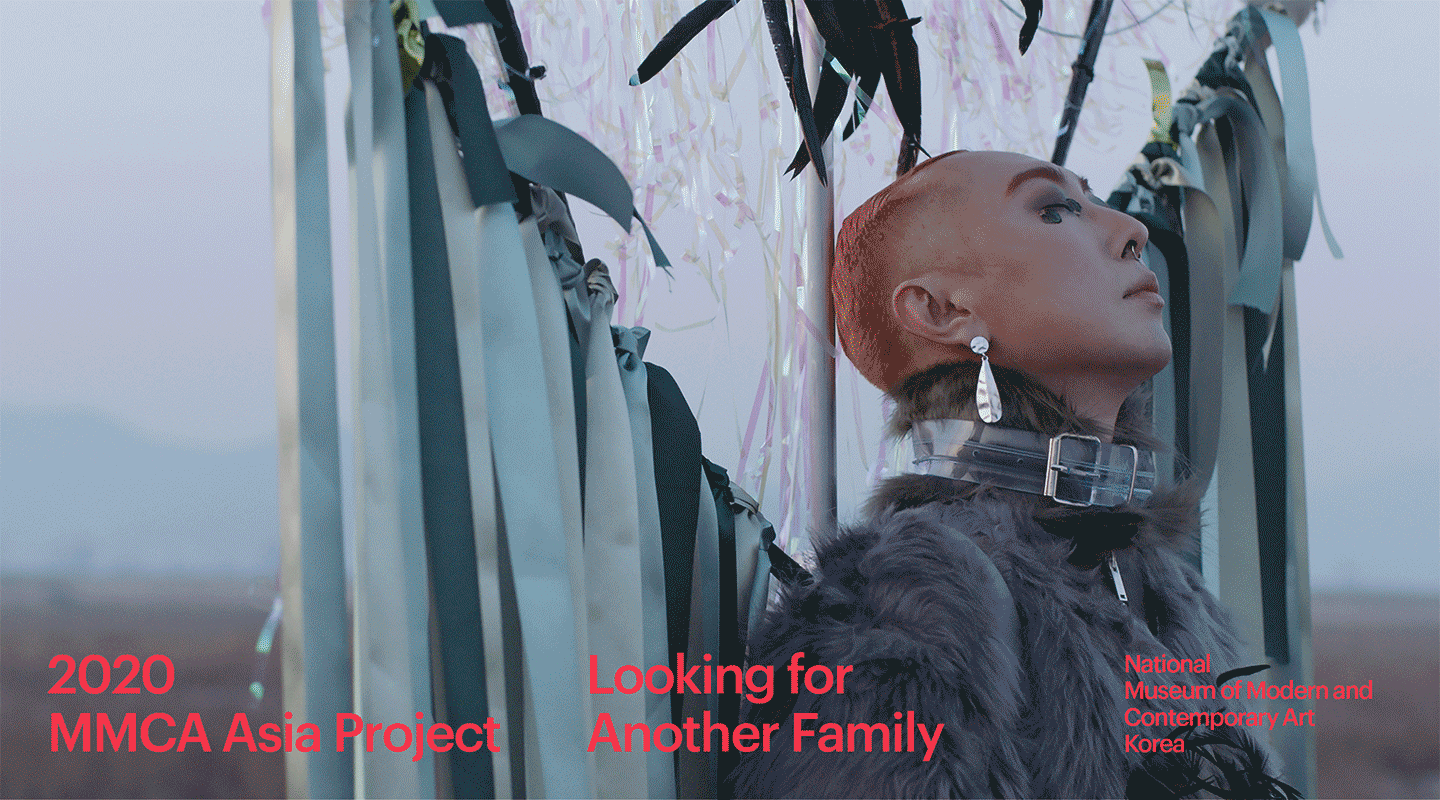2020 Asia Project
May 22–August 23, 2020
30 Samcheong-ro, Jongno-gu
03062 Seoul
South Korea
Hours: Monday–Sunday 10am–6pm,
Wednesday and Saturday 10am–9pm
T +82 2 3701 9500
Kang Seung Lee, Dew Kim, Jong YuGyong, Tandia Permadi, Eisa Jocson, Ni Hao, South Ho Siu Nam, RESBAK, Atsushi Watanabe, Wang Tuo, 98B COLLABoratory+HUB Make Lab+KANTINA, Yee I-Lann, Isaac Chong Wai, Jatiwangi Art Factory+Budnamugage, FDSC
Looking for Another Family is part of the 2020 Asia Project; a proposal which aims to build and expand upon the “Asia Focus” series, MMCA’s long-term initiative launched in 2018. Whereas the previous exhibition How Little You Know About Me (2018) saw Asia as a critical point of view through which to view the world, not as a term referring to a geographical distinction or cultural identity, the second Asia Focus project is centered around finding answers to certain issues that arose in the first project, with an overarching question in mind: what’s next?
The project seeks to suggest alternatives to traditional ideas of economic or technological efficiency by exploring new concepts of “family”; expanding the word beyond its traditional definition, where it is primarily used to emphasize biological or/and marital relationships, and in doing so dealing with the importance of addressing a problem from diverse perspectives based on the different experiences and values of individuals. During this time of global uncertainty, the world seems vulnerable to the dangers of isolation and conflict. Looking for Another Family suggests that these threats have always been there, invisible but active, and encourages us to look at them in a more explicit manner. By reflecting upon what we can learn from the unveiling of previously unseen tensions, the exhibition seeks to explore the possibility of “another family,” with whom we can share emotions and search for solutions to urgent issues, repositioning the term in order to experiment with generating a sense of social solidarity.
The exhibition starts with a focus on the self, exploring identity and the roles imposed on individuals by society, and expands to examine the connections between much larger structures such as societies, nations, and the world. The public space in the hallway and Gallery Madang, which can be found upon exiting the exhibition, are designed as a platform to further discussion around the issues raised by the artworks and to build emotional solidarity. With these missions at the heart of the show, various supplementary events have been organized to expand the audience experience beyond the exhibition, and to create a more active platform for discussing and empathizing with the central themes of each work of art. These events, including interactive workshops, roundtables, performances, a newsroom, a farm, an real estate investment briefing, film screenings, and karaoke take place over the three-month period of the exhibition, encouraging the audience to more actively engage with the artworks. Through the program of events we explore alternative concepts of family and the possibility of new solidarity based upon empathy.
In the face of many different issues, it is often hard to find the answer to the question of “what’s next?” While it may be impossible to find a single clear definition or solution to the problems present in our societies, this exhibition posits that empathy and understanding of each other through the formation of lasting relationships are the power and energy that can further fruitful discussions. Against this backdrop, we set the museum as a space for anyone to gather and discuss these ideas freely, regardless of age or socio-economic class. The other “family” that we imagine through this project ruptures rigid and fixed frameworks and presents a flexible platform for empathy and solidarity.



